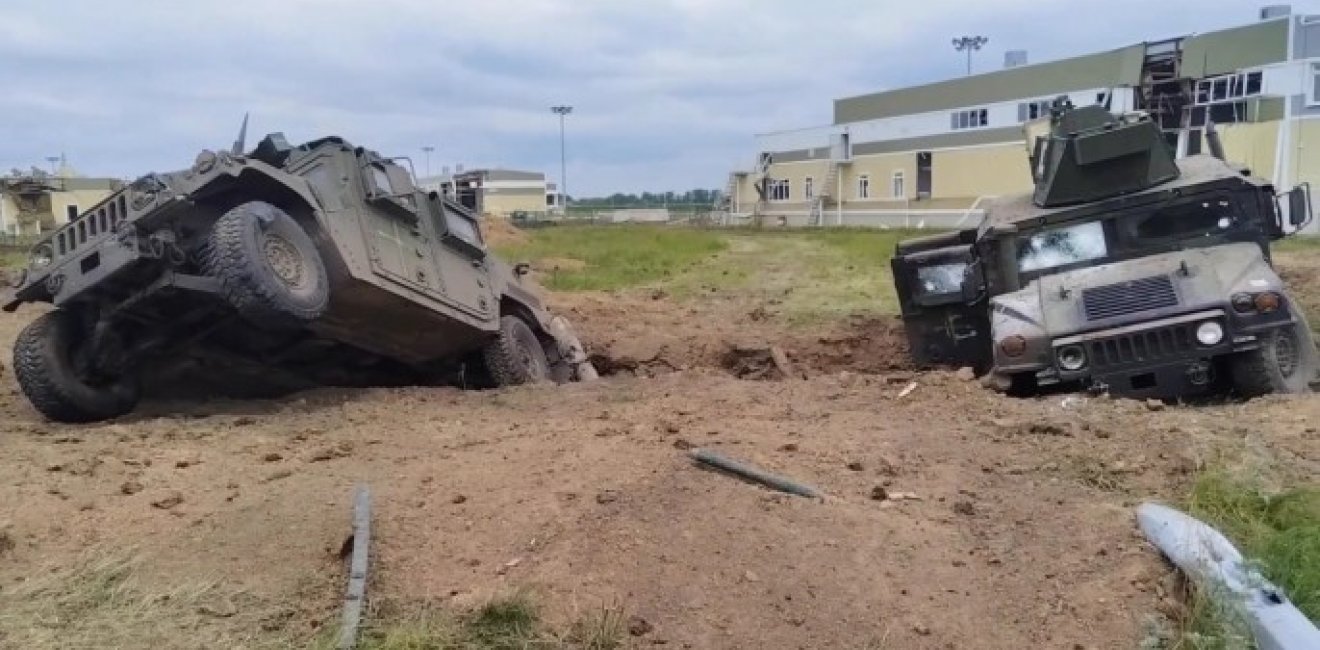
A blog of the Kennan Institute
The war has come to Russia. The Russian city of Shebekino, a stone’s throw from the border with Ukraine, has been under massive Ukrainian shelling for the past days. The residents are fleeing and being evacuated.
Earlier, drones appeared over Moscow. The Ministry of Defense confirms eight drones; all of them, according to the department, were shot down. But according to local media sources, there were about twenty-five uncrewed devices, most of which were intercepted by Moscow’s air defense forces. Three drones crashed into residential buildings; one of these devices carried explosives that did not detonate.
Drones in the Night Sky
People asleep in peaceful homes should not have to wake up to explosions. But it is important to understand why drones are flying in the sky over the Russian capital. After all, in the sky over Kyiv, drones and cruise missiles appear every night, spreading death. For example, on June 1, two women, aged thirty-three and thirty-four, as well as the nine-year-old daughter of one of the women, were killed in an attack.
Russian propaganda these days is having another day of hypocrisy. On TV we see anger, calls for revenge, hysteria. Some hosts of evening political shows even return to the original mantra, which apparently has been conveniently forgotten in Moscow: “The Russian Forces are inflicting precision strikes exclusively on military targets.” And Ukrainians, they say, are targeting civilians (no one in Russia has died from the drone attacks so far).
Russian propaganda is having a field day with the drone attacks. Yevgeny Popov, a TV presenter and a Duma MP, compared the drone incident over Moscow with terrorist attacks inside Russia in the late 1990s and 2000s. “Together, calmly and coolly, we have to finish the work of destroying the terrorists,” he wrote on his Telegram channel.
But no, Yevgeny. The current situation is different from those times. Those were relatively peaceful times. Now Russia is waging a bloody war in a neighboring state.
However, there are similarities. Twenty years ago, as now, the president of Russia was Vladimir Putin. Twenty years ago, as now, the threat to Russia’s people and the deaths of some were trifling matters for him. Starting the so-called “special military operation” in Ukraine, he should have understood that the war would come home to Russia. But did he even care? Death is already his constant companion.
The Lindsey Graham Debacle and the Value of a Russian Life
US senator Lindsey Graham has been put on the wanted list in Russia. A statement incorrectly attributed to him during his meeting with President Volodymyr Zelensky in Kyiv raised a storm of emotions and recriminations. In a video released by the Office of the President of Ukraine, Graham reportedly says that the death of Russians is “the best use of American money.”
Except he did not say anything of the sort. The video was obviously edited. In reality, the dialogue went like this:
Zelensky: It’s a big, big support. Very important.
Graham: The best money we’ve ever spent. [...]
Graham: There was a time in America when we were this way, fighting to the last person. We’re going to be free or die.
Zelensky: Now you are free.
Graham: And you will be.
Zelensky: And we will be.
Graham: And the Russians are dying.
Zelensky: Yes.
This story is indicative from several points of view. First, Kyiv is waging not only a hot war but also an information war against the aggressor. Unlike the rusty Moscow propagandists, Zelensky’s team keeps the entire Western world in good shape, forcing leading politicians to talk about Ukraine literally every day, to remember the war, and to condemn the criminal. At the same time, failures like this sometimes happen. Distorting the words of an American senator is dangerous and counterproductive.
Second, officials in Russia put themselves in a stupid position, grabbing the video without any verification. The outrage around the nonexistent statement quickly led to calls for the liquidation of the senator himself.
Finally, the Russian investigating authorities got down to business. The very people who construct cases against “enemies of the state,” who look for and find “foreign agents,” who conduct searches, imprison, kill—these functionaries do their job so well that they don’t ask questions about the video editing and don’t look for the original recording. Therefore, Aleksandr Bastrykin, head of the Investigative Committee of Russia, launches a criminal case against Lindsey Graham. I imagine he couldn’t care less. Still, this case is based on pure nothing, just like all the other political cases in Russia.
But the most important point is the cold-hearted instrumentalization of the deaths of Russians. The deaths, murders, and loss of life of citizens of the Russian Federation attract the attention of the authorities only when they become a reason to “call to account” an American senator. The rest of the time, the value of the life of a person living in Russia is equated by the state to zero.
The values around fighting in the two countries are diametrically opposed. Russia’s full-scale, unjustified invasion is killing the citizens of a neighboring country. This aggression motivates Ukrainians to fight. They protect their children and their homeland.
In Russia, men go to the front line to slaughter for money, for release from the penal colony, out of hopelessness, out of a lack of understanding of all the horror of the invasion. They take up arms. Many return home in zinc coffins. Vladimir Putin and other government officials do not appear at funerals, do not make mournful speeches, do not hug weeping widows. They just send new recruits to war. After all, Russia is a big country.
And I think that Yevgeny Prigozhin, head of the Wagner private militia, has found his audience among Russians for his statements furiously criticising the Ministry of Defense.
In his videos, which are regularly posted on social media, Prigozhin seems to feel sorry for the Russians sent to war to be cannon fodder. He’s kind of protective of his guys. He seems to take care of them. And since no one else even pretends to, the screaming of a mercenary chief with a criminal record somehow resonates with Russians losing family members. The killer becomes the most empathic, sympathetic representative of the state. This is a terrible sign of the new times.
Russia is dominated by aggressive indifference. More precisely, this indifference is imposed by the authorities. They don’t show the nightmare of the invasion on TV.They just get upset, watching how Ukrainian cities, despite the terror, survive. If you raise doubt about the “special military operation,” you will get a fine or a prison term. If you publicly ask a question about the meaning of the murder of Ukrainians and the deaths of Russian soldiers, you will get the same answer. In large cities like Moscow, St. Petersburg, and Yekaterinburg, they do not bury the mobilized men in large numbers, so society is silent.
And when the Belgorod region of Russia is subjected to retaliatory shelling, an external culprit is immediately found. It is too scary, and for some simply impossible, to grasp that you are being killed by your own state.
On March 23, 2022, the journalist Oksana Baulina was killed in Kyiv as a result of Russian shelling. She was a citizen of the Russian Federation. No criminal case has been initiated. They just don’t care.
Death Is Putin’s Constant Companion
A person’s life has never meant anything to Vladimir Putin.
While sailors were dying in August 2000 in the Barents Sea from the nuclear-powered submarine Kursk accident,Vladimir Putin, vacationing in Sochi, was, I suspect, thinking about the unpleasant geopolitical situation and his personal political losses. There were 118 sailors on board. None of them survived. The fact of the explosion became widely known only two days later, and the Kremlin accepted foreign search-and-recovery assistance from Norway and Britain only after five days had passed, when all on board were dead. The Supreme Commander visited the site of the accident ten days later.
Putin has never visited the sites of terrorist actions inside Russia that destroyed residential buildings and schools. But he successfully took advantage of alleged Chechen involvement to start the Second Chechen War. Russians’ fear of terrorism brought Putin to power. Death made him president. Death has accompanied him for all those twenty-three years.
We have long been accustomed to the fact that the Russian state does not stand up for its citizens, does not save them. We always knew that the arms dealer Viktor Bout would be rescued by the government for propaganda purposes and then would be paraded on stage, and that they would make him a living caricature, a monument to today’s madness. But they would not lift a finger to save Sofya Sapega, a Russian citizen locked in a Belarusian prison. We are used to the fact that the cinematic rescue of the American private Ryan or the real rescue of the Israeli soldier Gilad Shalit are stories from another life. In Russia, the church itself blesses the murder.
“The death of one person is a tragedy. The death of millions is a statistic.” This phrase is often attributed to Joseph Stalin, though the attribution lacks confirmation. But it doesn’t really matter. Whether Stalin said it or not, his entire rule proved his adherence to the principle of killing as many as possible. Vladimir Putin lays claim to the laurels of his predecessor. There is only one bit of good news here: in March 1953, it became clear that dictators are mortal too.
The opinions expressed in this article are those solely of the author and do not reflect the views of the Kennan Institute.
Author


Kennan Institute
After more than 50 years as a vital part of the Wilson Center legacy, the Kennan Institute has become an independent think tank. You can find the current website for the Kennan Institute at kennaninstitute.org. Please look for future announcements about partnership activities between the Wilson Center and the Kennan Institute at Wilson Center Press Room. The Kennan Institute is the premier US center for advanced research on Eurasia and the oldest and largest regional program at the Woodrow Wilson International Center for Scholars. The Kennan Institute is committed to improving American understanding of Russia, Ukraine, Central Asia, the South Caucasus, and the surrounding region through research and exchange. Read more

Explore More in The Russia File
Browse The Russia File
Chechnya as a Model of Modern Russia

Russia’s Indigenous Communities and the War in Ukraine

Gas and Power in a Changing US–Russia Relationship

